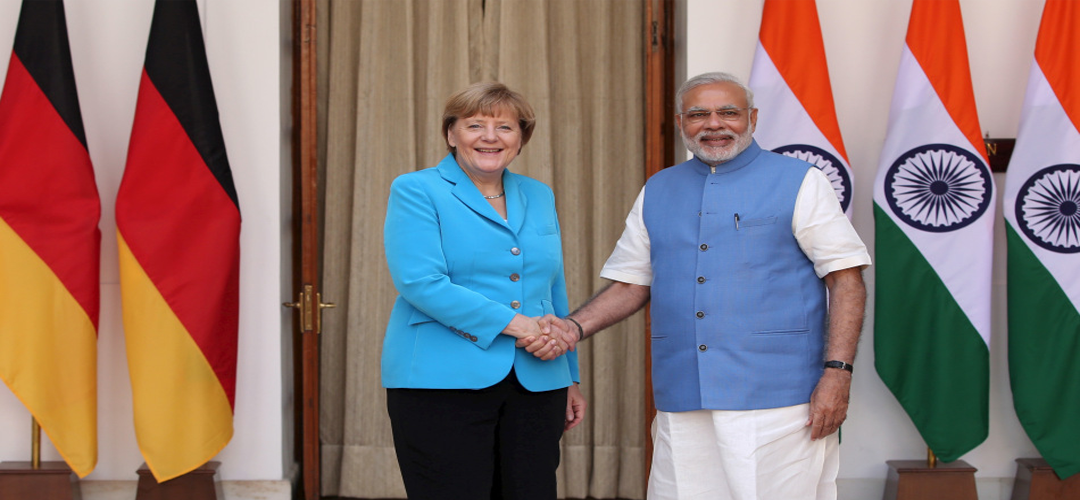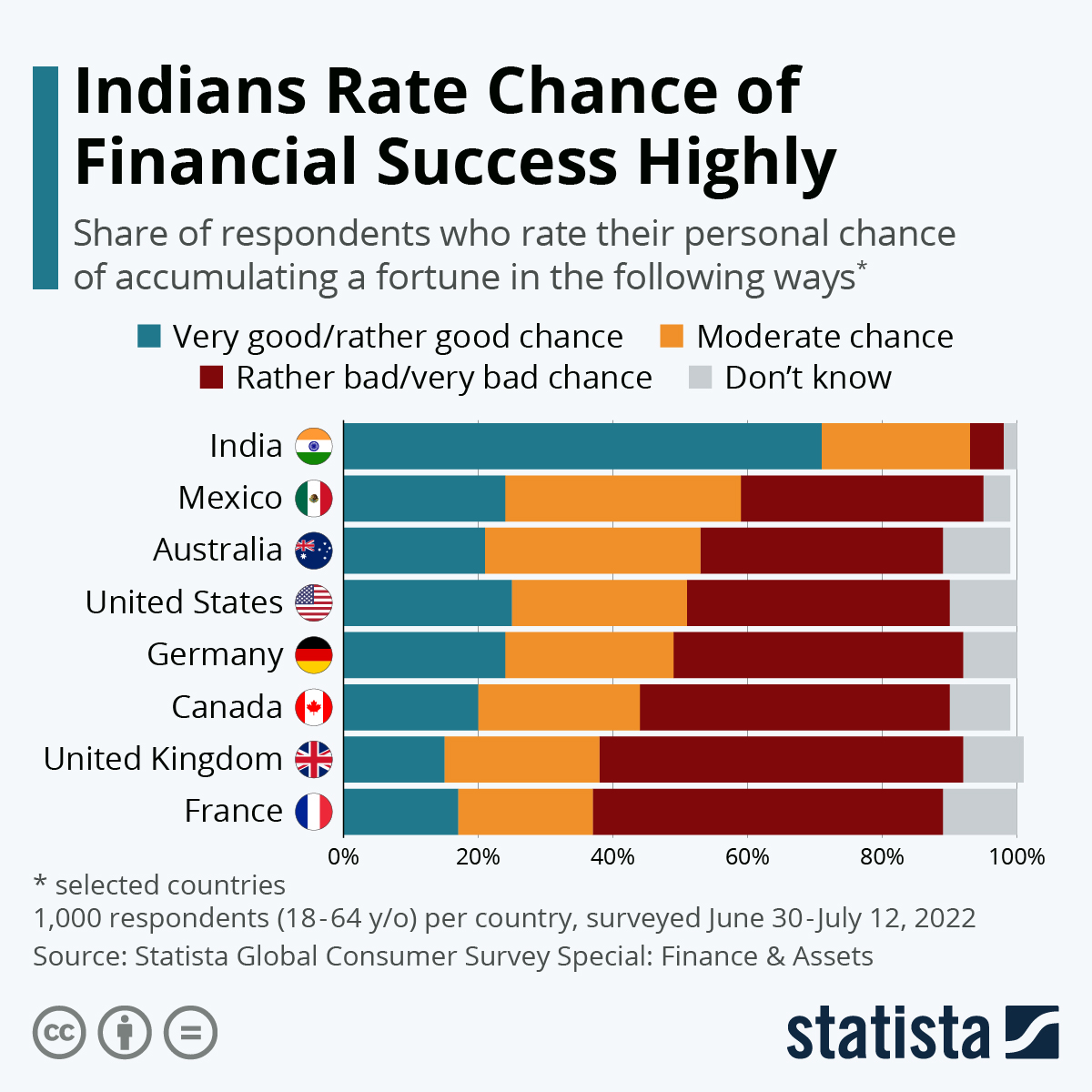India & Germany-a Post-ukraine Reset?
March 11, 2023 | Expert Insights

Germany has been an important country for India for the last seven decades. The engine of growth behind the economic success of EU, it has always been India's gateway into the EU, cognizant of India's importance in the Global South.
The recent visit of Chancellor Olaf Scholz to New Delhi last week was a welcome move as it enables India to revisit its relations with this economic powerhouse of the EU, despite India’s contrary view on the Russian invasion of Ukraine.
Background
Indo-German relations pre-date India's independence, with great interest displayed by German academics in Indian Aryan history and culture. It is not surprising that even in the race-obsessed Nazi Germany, British Indian Prisoners of War were recruited in selected SS units along with the French, Swedes, Danes, Norwegians etc., as part of Subhash Chandra Bose's Indian Legion (Indische Legion). Subhash Chandra Bose, the leader of the Indian National Army, made several visits to Germany to seek military assistance from Adolf Hitler.
India was one of the first countries to recognise the newly established Federal Republic of Germany (FRG) following the end of the Second World War. In the ensuing Cold War, the Federal Republic or West Germany aligned itself with the Western bloc, while India stayed clear of any alignment with either of the power blocs. This meant a certain gap in geostrategic perceptions between these two countries in this early period.
The relations with FRG during the Cold War period were not without its irritants, especially when India reunited Goa, Daman and Diu by the force of arms and also cut Pakistan into two in 1971. After the collapse of the Berlin Wall, a unified Germany was one of the strongest critics of India going nuclear in 1998 and participated in many punitive economic sanctions.
India did not discriminate between East Germany and West Germany and maintained relations with both. So, when the reunification of Germany took place in 1991, India welcomed this development.
However, over the years, as India grew in significance, the relations have been steadily heading North.
India and Germany have a long history of collaboration on the technological front. At the official level, the German Research Ministry and the various German research institutes have worked with their Indian counterparts on numerous issues. The funding procedure that has been followed in this regard has been bilateral research funding. That is each side has contributed according to its needs and capabilities. A special emphasis has been placed on applied research.
The story on the trade front has also been quite impressive, and Germany has been India's 7th largest foreign direct investor since January 2000. A number of collaborations and joint ventures have also been high, along with different programs to facilitate the ease of doing business.

Analysis
Since the early 2020s, India's economic and geostrategic stature has grown exponentially, a fact that is duly acknowledged by Bonn. With EU confronted with a huge energy and cost of living crisis following the pandemic, BREXIT and the Ukrainian war, India would be an attractive destination for investment and trade.
A strategic partnership agreement was signed between the two countries in 2001. Under this agreement, renewed over the years, many areas of cooperation have been developed. These include industrial and economic cooperation, high technology, defence collaboration and joint counter-terrorism initiatives. Germany has also supported India’s bid for permanent membership in the Security Council and expects India to reciprocate when it comes to its bid for the UNSC.
German technical know-how is something from which India can significantly benefit in the future. It is through its people's technical prowess and ingenuity that Germany recovered from the devastation it suffered during the Second World War. India needs the proper scientific research environment and infrastructure to continue its technological progress upwards. Very few other Western countries are willing to share their technology with India the way Germany does.
India must use this opportunity to move ahead in up-and-coming technology arenas where it might take years to catch up otherwise. Developing the right scientific culture takes time, so this will be a long-drawn-out process.
Areas, where there is further scope for India and Germany to cooperate in the technology sphere include biotechnology, health, sustainability, disaster management, artificial intelligence and urbanism. Each of these areas has vast possibilities for India's future development.
Along with the technological aspects, the famed work culture and ethics of the Germans must also be imbibed. Only then will India be able to recreate the German success story on its soil.
The German Chancellor Olaf Scholz has brought in the idea of a free trade agreement. So, if a free trade agreement does come out between India and the EU, then it will open up a huge market for Indian companies. This is an opportunity that New Delhi cannot miss.
Another issue which has come up during this visit is the white-collar workers from India working in Germany, especially in the technology sector. Traditionally the U.S., UK and Australia have been the destination of choice for Indian working professionals due to the common English language. Access to Germany has been curtailed because of visa restrictions and the requirement to learn the German language. In a surprise move, the German Chancellor has hinted that the visa process might be simplified, and the language requirement could be made optional.
Assessment
- Cut off from cheap Russian energy sources after having spent billions in the Nord Stream pipelines and forced to increase its defence expenditure to mandated NATO levels (at least 2 per cent of the GDP), Germany is on the lookout for lucrative partners in the global South. Not surprisingly, India was its first port of call.
- The growing engagement between New Delhi and Berlin is a good sign for both countries. This is despite the continuing differences over the Russia-Ukraine war and other issues like climate change. There need not be a complete alignment for the two countries to work together on issues where their interests converge.








Comments